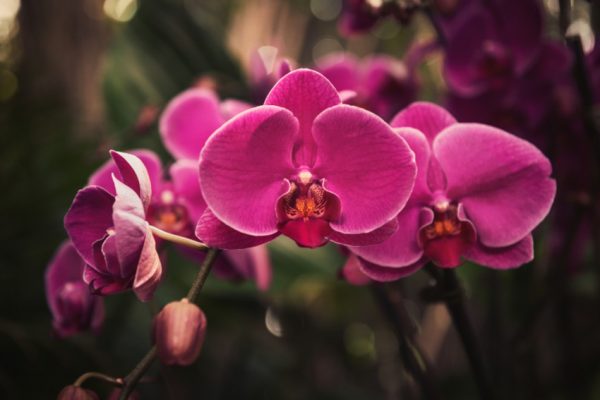The Princess and the Pea

In this classic fairy story, the princess proves her royal status to the doubting Queen by being highly sensitive to and disturbed by the pea placed under her mattress overnight.
Subsequently, she and the prince are married, and of course, “live happily ever after.” But, unfortunately, we don’t hear about how overwhelming it can be for a sensitive princess (or prince) to live in the real world of loud noises, bright lights, insensitive people, and bustling crowds.
Also known as a highly sensitive person (HSP), this trait is attributed to about 15 to 20 percent of the population.
We are all sensitive to a degree, whether it’s low, medium, or high. A psychology researcher, Prof. Michael Plues, further categorizes these groups as dandelions, tulips, and orchids; based on their sensitivity to their environment and experiences.
The massage clients I see that would be considered highly sensitive (orchids) often feel the physical pressure I apply as stressful unless it’s more gentle and within their comfort level. However, they tend to have a lower pain threshold and benefit from being as much in control as possible when it comes to their immediate environment.
This is particularly so for Jane, who is a long-term client and fellow English-American transplant. Jane is far from plain with short dark hair, deep blue eyes, and a womanly, curvy figure. She and I now understand and can laugh at her princess ways during a session. A bit like Goldilocks trying out the bear’s beds of too hard then too soft, I strive to get the comfort level “just right!”
We often have fascinating conversations, and recently I asked Jane about some of the challenges of her sensitive nature.
There is a long pause before she responds. “The first thing that comes to my mind is boundaries. It can be a challenge for a sensitive woman to set boundaries. You know you see those bumper stickers on cars and people’s front lawns, Be Kind. It is a wonderful quality and comes naturally to compassionate people. But what happens is that others get used to you being the accommodating one, the nice one. So it also comes down to having a backbone and setting boundaries, which can cause conflict with others. That’s something I think a lot of sensitive people avoid.”
I ask, “What kind of stress does that create for you internally when your boundaries are not respected or met?”
“I notice that it’s all within the body,” Jane replies. “Tension, clenching of teeth, you know it will manifest in various illnesses. I am so sensitive to energy that I am like a sponge. I feel everything going on around me most acutely. Over the years, I think most of us learn to deflect and protect ourselves from other people’s energy, but it’s hard. It’s both a blessing and a curse.”
Psychologist Elaine Aron writes, “Like all personality traits, there are pros and cons to being highly sensitive. However, with proper support and recognition of one’s strengths and weaknesses, HSP’s can set up environments in which they can thrive.”
Dr. Aron continues, “Some of the pros of being an HSP are forming deep bonds with other people, having exciting dreams and internal monologues, and finding great enjoyment in art, music, and human connection.”
As the hidden power of relaxation underpins every article I write, I ask Jane how she gets to relax more deeply than usual.
Her eyes sparkle and her voice picks up with enthusiasm as she shares with me. “Oh, that’s very interesting because I’ve recently started taking part in Forest Bathing excursions. I choose the option of a guided nature walk with a small group of people. It helps me to open my senses and connect with the natural world. I’m also not alone while being enveloped in this amazing natural forest experience. There is something about being outdoors with the trees and plants – Gaia’s mother earth energy is so potent. I feel this automatic peace and quiet as soon as I am within a couple of yards of the forest. It is lovely.”
I later read about what Regan Stacey, the creator of Awaken the Forest Within, (awakentheforestwithin.com) in Lyme, CT says:
“It has only been in recent centuries that many humans have slowly disconnected from the land and turned away from honoring the balance of all life, and in essence, our own inner balance. To rekindle a love for nature and all her beings is to rekindle a love for ourselves, our communities, and the planet. We need this now more than ever.”
Whether you are a dandelion, tulip, or orchid level in sensitivity, most of us recognize that spending quality time in nature deeply nurtures our true authentic selves and directly contributes to our health, relaxation, and happiness.
If you are interested in identifying where you, your partner or your child lands on the “sensitivity continuum”, visit SensitivityResearch.com. Their website has free tests for different age groups and some fascinating research information.
Disclaimer: The opinions expressed in this post are my own views, for the reader’s information and education only. This does not constitute legal, medical, or psychological advice. Where individuals have been named, I have had their express permission to quote them here, or I have changed names, gender, and circumstances to protect all individuals’ privacy completely.